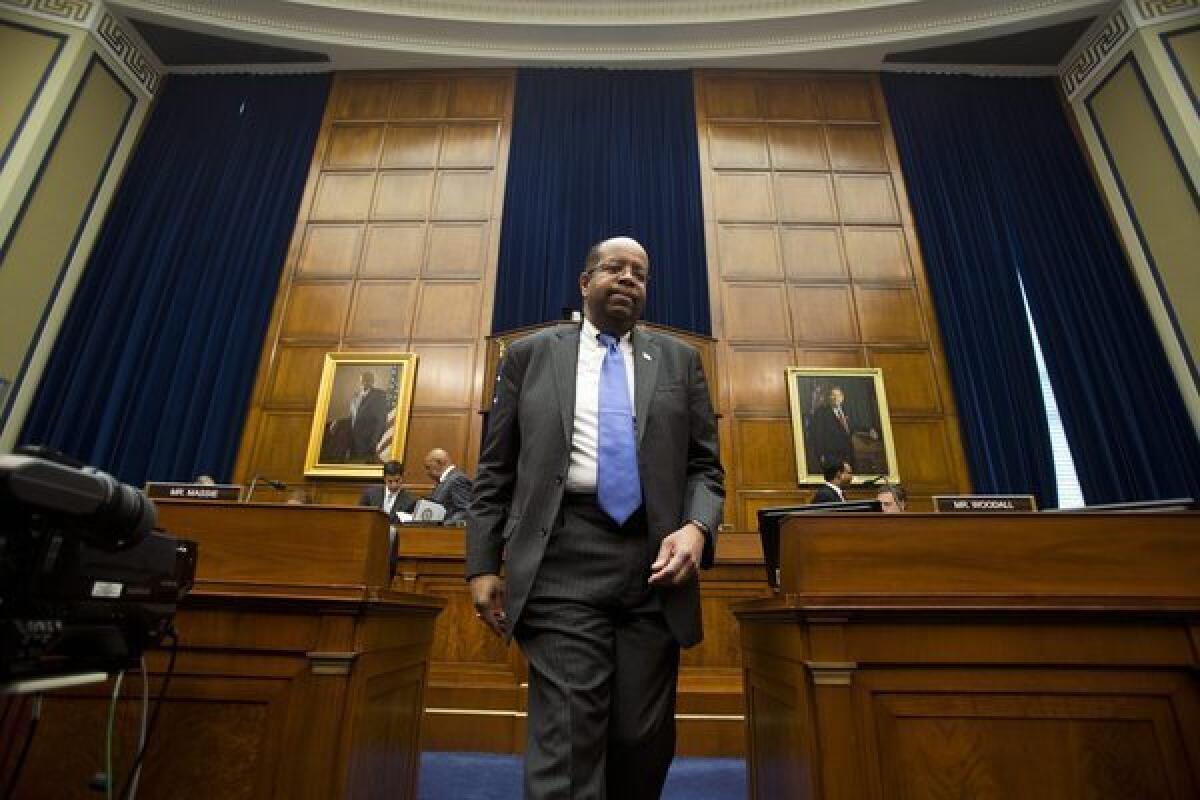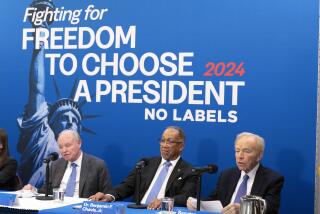The IRS scandal is still a scandal, just not the one advertised

The scandal surrounding the Internal Revenue Service’s handling of tea party groups took a left turn this week after congressional Democrats revealed that the tax agency had also targeted liberal groups for scrutiny. The revelation led some liberals to declare that the controversy was a manufactured one, created by a partisan Republican (Rep. Darrell Issa of Vista) to taint President Obama.
If only. The new information changes the context profoundly, but it doesn’t explain why IRS employees made wholly inappropriate demands for information from politically active groups seeking nonprofit status under Sections 501(c)(3) and 501(c)(4) of the tax code. Nor does it explain why applications from some groups languished for years while lower-level IRS agents waited in vain for guidance from headquarters.
The scandal has always had two main elements: the “be on the lookout” lists the IRS used to flag certain applicants for special scrutiny, and how that scrutiny was conducted. The first of these issues -- and only the first -- was recast this week when Rep. Sander Levin (D-Mich.), the top Democrat on the House Ways and Means Committee, released BOLO lists from August 2010 to April 2013. Although heavily redacted, they revealed that tea party groups were hardly the only ones flagged for extra screening.
Other would-be nonprofit groups singled out include “progressive” or “blue” organizations (“Activities are partisan and appear anti-Republican”), as well as those involved in “Occupied Territory Advocacy” (“Applications may be inflammatory, advocate a one-sided point of view, and promotional materials may signify propaganda”), medical marijuana, paying down the national debt, setting up regional health information exchanges and accountable care organizations and promoting open source software. Some on the BOLO lists had obvious political overtones; others simply presented new questions about who should receive a tax exemption.
The oldest of the BOLO lists released by Levin -- the ones from August 2010 through March 2011 -- indicate that the IRS had been flagging applications from progressive groups for some time, while tea party groups were newly receiving scrutiny. In the case of the former, the list says that “their ‘progressive’ activities appear to show that (c)(3) may not be appropriate.” (Section 501(c)(3) groups collect tax-deductible contributions and may not engage in any campaigning.) For the latter, the list says the applications for (c)(3) or (c)(4) status should be sent to a particular IRS group for review with help from Exempt Organizations Technical, a group of experts in Washington. (Section 501(c)(4) groups collect donations that are not tax-deductible, and they may participate in political campaigns so long as it’s not their primary activity.)
The next oldest list released by Levin, from February 2012, drops mention of tea party and refers instead to “political action-type organizations involved in limiting/expanding government, educating on the Constitution and Bill of Rights, social economic reform/movement.” It goes on to exempt from extra screening “typical advocacy-type issues” that don’t engage in political activities, and it no longer calls for consultations with the Exempt Organizations Technical group. This reflects the previously disclosed efforts by IRS supervisors to clean up the BOLO lists.
By June the IRS was taking an even more general approach on the BOLO lists, calling for extra screening of applicants “with indicators of significant amounts of political campaign intervention (raising questions as to exempt purpose and/or excess private benefit).”
Some conservatives argue that the scrutiny for progressive groups was tame compared to that applied to conservative ones. That’s worth exploring. What the BOLO lists show is an agency working its way through numerous new questions raised by applicants, and trying to do so in a standardized way.
That, in and of itself, isn’t scandalous. And Democrats such as Levin are rightly aggravated at IRS Inspector General J. Russell George for playing up the flagging of tea party groups in his audit report while barely mentioning those on the other side of the political spectrum. George has said that Issa asked him to determine whether certain taxpayer groups (read: tea party organizations) were being treated unfairly, and that’s what his office did.
Nevertheless, the public still deserves to hear why IRS employees demanded that some groups reveal their donor lists and the amounts they donated, the positions the group had advocated, the political affiliations of their leaders and other pieces of information that served no purpose other than to reveal the political leanings of the applicants. As I wrote in a previous post, the tax code doesn’t care who belongs to or contributes to a 501(c)(4) or what they believe. It cares only what they do with their money.
The IRS also should explain why it took 20 months for managers to come up with guidance for how to evaluate 501(c)(4) groups, effectively freezing those applications for an entire election cycle. It should show more clearly that liberal and conservative 501(c)(4)s were handled the same way, and if not, explain why. And it should detail what role, if any, Obama administration officials played in developing the BOLO lists and scrutinizing applicants.
The Times’ editorial board has called for an independent commission to investigate the scandal, and this week’s revelations do not diminish the need for such a probe. They just change the scope of its work.
The disclosures also should remind lawmakers that they put the IRS in a position to fail when they didn’t specify how much campaigning tax-exempt groups could do. Nor did they make clear where lobbying and issue advocacy end and campaigning begins. The agency never should have been left to decide where, exactly, to draw those lines.
ALSO:
Proposition 8: Kind of a victory
Clarence Thomas and the gospel of colorblindness
Roberts to Congress: We warned you about voting rights
Follow Jon Healey on Twitter @jcahealey
More to Read
A cure for the common opinion
Get thought-provoking perspectives with our weekly newsletter.
You may occasionally receive promotional content from the Los Angeles Times.







